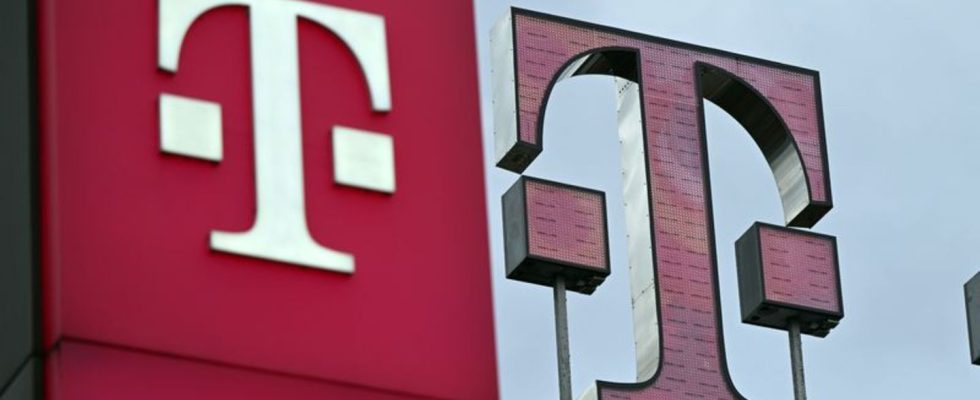Internet
Telekom wants to significantly improve the Autobahn cell phone network
The Magenta Group wants to significantly expand the mobile phone networks on the motorways. photo
© Federico Gambarini/dpa
At the turn of the year 22/23, the network operators had to comply with a state expansion obligation so that mobile communications on motorways are good. Now Telekom is looking ahead.
Deutsche Telekom is investing heavily in its network along the autobahn so that travelers have better cell phone connections when they are driving. The Bonn-based company announced on Tuesday that it had entered into an agreement with the federal autobahn GmbH. By the end of 2027, Telekom wants to set up an additional 400 radio stations and modernize existing systems along the 13,000 kilometers of German autobahn.
The group currently has a good 6,000 locations along the routes. The investments are intended to increase the available transmission rate from currently at least 100 megabits per second to 200 megabits per second.
Areas next to the road will be provided
The federal company is aiming for comparable agreements with the other two German network operators – Vodafone and Telefónica (O2). The Telekom cooperation with Autobahn GmbH provides for a simplified and faster location search, including construction planning. In addition, the Telekom company will in future make areas directly next to the road available so that new masts can also be built on embankments, in rest areas or construction yards – the federal government is giving Telekom new opportunities to make progress with network expansion.
“We’re shifting up a gear on the Autobahn,” said Telekom Germany’s chief technology officer, Abdu Mudesir. The last gaps will be closed and the supply in the motorway tunnels will be improved. “People traveling should be connected in the best possible way.”
Telekom wants to go beyond the expansion obligations
The Parliamentary State Secretary in the Federal Ministry of Transport, Oliver Luksic (FDP), rated the start of the cooperation as a “milestone”. With the nationwide coverage of the 5G mobile communications standard, new fields of application in the area of autonomous, networked and sustainable mobility could be opened up. “We aim to significantly improve connectivity on our traffic routes,” said Luksic. “This is an important prerequisite for promoting our innovative strength and strengthening competitiveness and prosperity in Germany.”
With the agreement, Telekom goes beyond state expansion obligations. A corresponding specification from the 2019 frequency auction states that every network operator must cover all motorways with at least 100 megabits per second from the beginning of 2023. All three network operators reported to the network agency that they were complying with this obligation. The supervisory authority is currently examining whether this is also true.
However, according to the Federal Network Agency’s list of conditions, the mobile phone network obligation does not apply where an expansion is “legally and actually” not possible – for example because no property owner is willing to rent out his land as a radio tower site. The connection is also sometimes poor in tunnels or in nature reserves. In the future, drivers can also end up in a dead zone, even though the expansion requirements have been met.
And what do the Telekom competitors say? A Vodafone spokesman emphasized that the network expansion would continue. To this end, Vodafone is “in regular and constructive exchange” with the Autobahn GmbH des Bundes. A Telefónica spokesman pointed out that the O2 network along the motorways had already been improved and that the expansion there would continue in the future.

